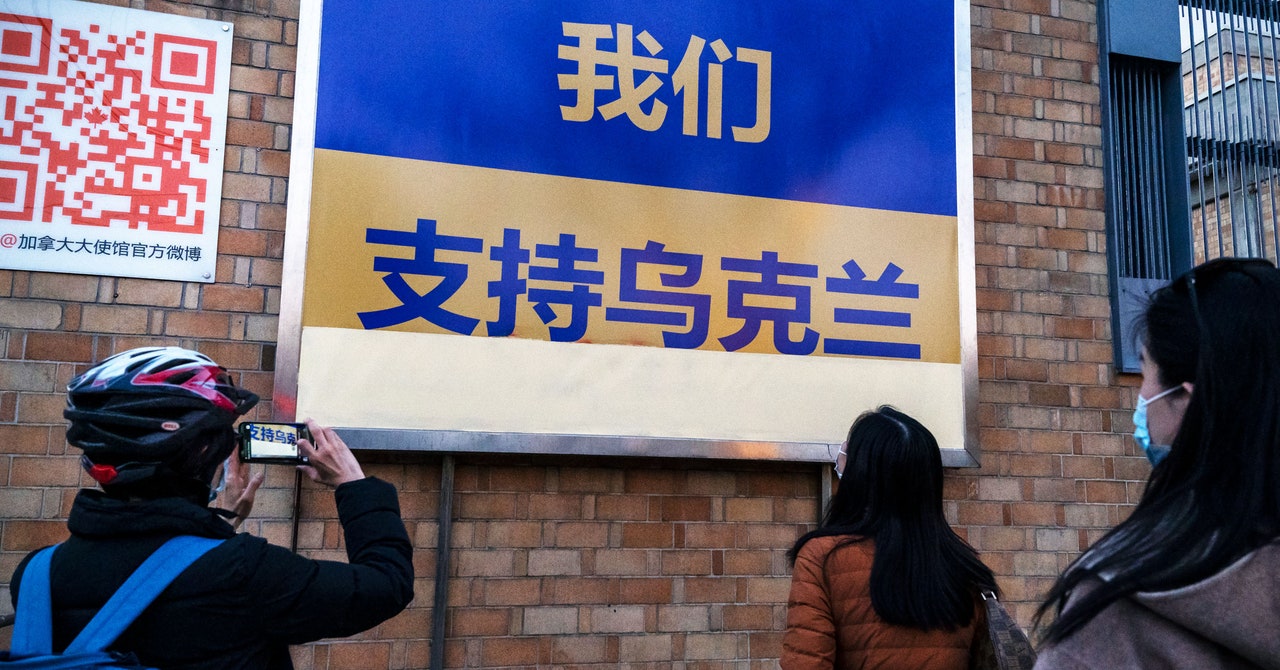“Artillery Fire Lights up in the air and breaks my heart. I hope my compatriots in Ukraine take care of themselves and their families,” said a user on Weibo, also known as China’s Twitter, on Feb. 27. The message was quickly blocked, according to Free Weibo, a service of Great Fire, which is censoring China online.
Two days later, a completely different message appeared on Weibo: “I support fighting! America and Taiwan have gone too far.” That too was blocked, according to Free Weibo.
The posts – and their swift disappearance – show how Chinese social media platforms are in the crosshairs of the war between Russia and Ukraine. The platforms should definitely follow the official line amid subtle shifts in China’s position. Their responses could be an early test of new rules governing how companies use algorithms, making them responsible for trending topics and fake news appearing on their sites.
In general, Chinese online platforms receive daily advice from the government about what kind of content to remove, said Yuqi Na, a researcher in media and communications at the University of Westminster.
A hint of how that works emerged in the days leading up to the invasion. On February 22, a Chinese outlet called Horizon News briefly posted, probably accidentally, what appear to be internal instructions for how to run the Ukraine crisis on its official Weibo account. Under the presumed lines: “Do not post anything unfavorable to Russia or pro-Western.”
The instructions also said to check comments and only use hashtags started by state stores Xinhua, CCTV or popular, according to China Digital Times. That kind of direction to follow the lead of major state stores is common, said Maria Repnikova, an assistant professor of global communications at Georgia State University and author of Chinese soft power†
Before the invasion, Chinese state media and officials’ Twitter accounts repeated a US drumroll. bellicose, and wiped out the possibility of an invasion. Once the attack began, China was in a difficult position to reconcile its long-standing policy of non-interference and respect for national sovereignty with its ties to Russia. Just weeks earlier, the two countries confirmed their relationship when Russian President Vladimir Putin was a VIP guest at the Beijing Winter Olympics.
In the early days of the war, the Chinese state media seemed surprised and proceeded cautiously. The relatively sparse coverage largely echoed Russian media, which called the conflict a “special military operation” and blamed the US and NATO. “It’s very intentional,” says Na. “Many internet users believe in that story if it is their main source of information.”
In that environment, pro-Russian and nationalist discourse flourished. Putin’s Feb. 24 speech justifying the invasion went viral, said Aliaksandr Herasimenka, research director of the Oxford Internet Institute’s Program on Democracy and Technology. Social media companies are thriving pro-war posts, as well as some sexist posts from Chinese men pining for Ukrainian refugee brides.
At the same time, there was an outpouring of sympathy for Ukrainians on platforms such as Weibo and Weixin, a widely used chat and news app, but many of those posts disappeared once they became popular. Twitter users documented to inform those were taken downincluding reports of anti-war protests in other countries.

